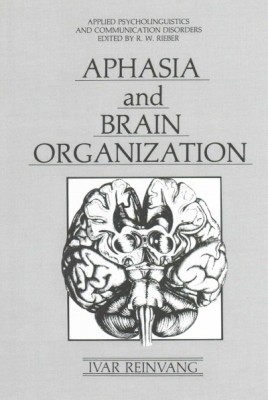| Aphasia and Brain Organization Softcover Repri Edition Contributor(s): Reinvang, Ivar (Author) |
|
 |
ISBN: 1475792166 ISBN-13: 9781475792164 Publisher: Springer OUR PRICE: $104.49 Product Type: Paperback - Other Formats Published: June 2013 |
| Additional Information |
| BISAC Categories: - Psychology | Neuropsychology - Science | Life Sciences - Biochemistry - Science | Life Sciences - Zoology - Ethology (animal Behavior) |
| Dewey: 616.855 |
| Series: Applied Psycholinguistics and Communication Disorders |
| Physical Information: 0.44" H x 6" W x 9" (0.63 lbs) 195 pages |
| Descriptions, Reviews, Etc. |
| Publisher Description: This book presents the work on aphasia coming out of the Institute for Aphasia and Stroke in Norway during its 10 years of existence. Rather than reviewing previously presented work, it was my desire to give a unified analysis and discussion of our accumulated data. The empirical basis for the analysis is a fairly large group (249 patients) investigated with a standard, comprehensive set of procedures. Tests of language functions must be developed anew for each language, but comparison of my findings with other recent compre- hensive studies of aphasia is faciliated by close parallels in test meth- ods (Chapter 2). The classification system used is currently the most accepted neurological system, but I have operationalized it for research purposes (Chapter 3). The analyses presented are based on the view that aphasia is an aspect of a multidimensional disturbance of brain function. Find- ings of associated disturbances and variations in the aphasic condition over time have been dismissed by some as irrelevant to the study of aphasia as a language deficit. My view is that this rich and complex set of findings gives important clues to the organization of brain functions in humans. I present analyses of the relationship of aphasia to neuropsychological disorders in conceptual organization, memory, visuospatial abilities and apraxia (Chapters 4, 5, and 6), and I study the variations with time of the aphasic condition (Chapter 8). |